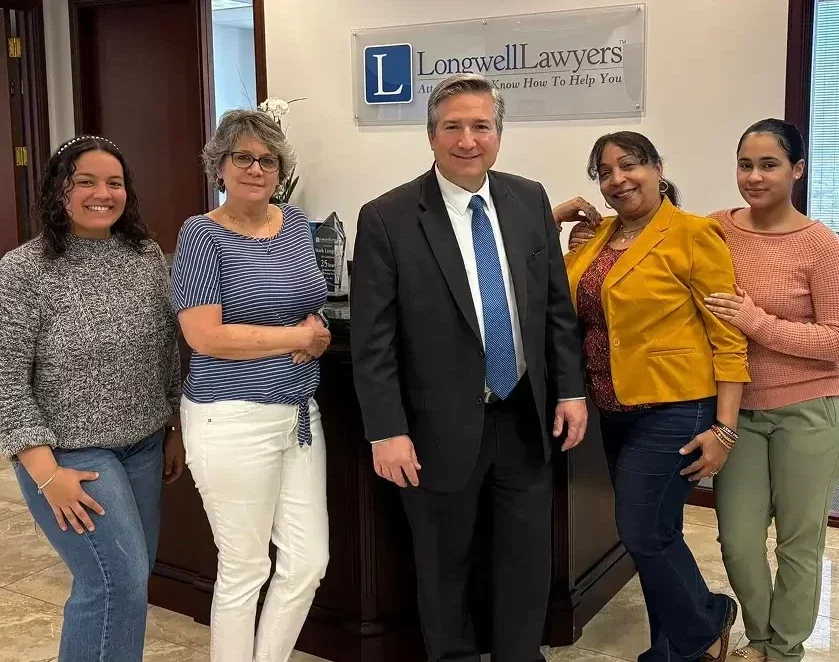- By Longwell Lawyers
Florida treats drug possession as a serious offense, even in small amounts. Depending on the substance and quantity, you could face misdemeanor or felony charges, heavy fines, and possible jail time. Understanding how the law defines “possession,” the difference between actual and constructive control, and the potential penalties under Florida Statutes Chapter 893 is essential if you or someone you know has been charged.
For strong defense representation, Longwell Lawyers provides experienced legal counsel in drug-related criminal cases throughout Central Florida.
Understanding Drug Possession Under Florida Law
Florida law defines drug possession broadly to include having control or access to an illegal substance, even if it’s not physically on your person. Prosecutors only need to show you knew the drug was present and had control over it.
There are two main types of possession under Florida Statute §893.13:
- Actual possession – The drug is on your person, such as in your hand, pocket, or purse.
- Constructive possession – The drug is found in a place you control (like your car, home, or backpack), and you knew it was there.
Florida also has a specific provision under §893.101 that removes the requirement for prosecutors to prove you knew the substance was illegal. Instead, a defendant can raise “lack of knowledge of the illicit nature” as an affirmative defense.
How Florida Classifies Controlled Substances
Florida follows a Schedule system (Schedules I through V) under §893.03. These categories are based on the substance’s potential for abuse and accepted medical use:
- Schedule I – High potential for abuse, no accepted medical use (e.g., heroin, LSD).
- Schedule II – High potential for abuse but with limited medical uses (e.g., cocaine, oxycodone, methamphetamine).
- Schedule III – Lower potential for abuse, accepted medical uses (e.g., anabolic steroids).
- Schedule IV–V – Lower risk drugs, often prescription medications (e.g., Xanax, codeine mixtures).
The severity of your charge depends largely on which schedule your substance belongs to and how much you allegedly possessed.
Penalties for Drug Possession in Florida
Felony vs. Misdemeanor Possession
Drug possession penalties in Florida vary based on the drug type and amount.
- Third-Degree Felony (Most Controlled Substances):
- Up to 5 years in prison
- Up to $5,000 fine
- Up to 5 years probation
- First-Degree Misdemeanor (Marijuana ≤ 20 grams):
- Up to 1 year in jail
- Up to $1,000 fine
- Up to 1 year probation
Even small amounts can lead to criminal records that affect employment, housing, and education opportunities.
Marijuana Possession
Although medical marijuana is legal for qualified patients under Florida Statute §381.986, recreational use remains illegal.
- Under 20 grams: Misdemeanor
- Over 20 grams: Third-degree felony
- 25+ pounds or 300+ plants: Triggers trafficking charges with mandatory minimum prison sentences.
For defendants with valid medical marijuana cards, possession within the legal limit may not constitute a crime. However, non-compliance with regulations can still lead to prosecution.
Prescription Drug Possession
Possessing prescription drugs without a valid prescription can lead to felony charges under §893.13(6)(a). Common examples include oxycodone, hydrocodone, Adderall, and Xanax.
Having a valid, doctor-issued prescription is a defense, but the State may still investigate whether the prescription was legitimate or altered.
Drug Paraphernalia Possession
Possession of drug-related equipment—such as pipes, syringes, or scales—is a first-degree misdemeanor under §893.147. If paraphernalia is used to sell or distribute drugs, penalties can increase significantly.
Trafficking Thresholds & Mandatory Minimums
If the quantity of drugs exceeds specific weight thresholds, Florida law classifies the offense as drug trafficking, even if there’s no evidence of sale. These charges carry mandatory minimum prison sentences under §893.135:
- Cocaine: 28 grams or more
- Heroin or Fentanyl: 4 grams or more
- Marijuana: 25 pounds or 300 plants
Mandatory minimums range from 3 to 25 years, with fines up to $500,000, depending on the amount and substance.
Collateral Consequences of a Drug Possession Conviction
Drug convictions in Florida often have lasting effects beyond jail time or fines, including:
- Driver’s License Suspension: Judges may revoke licenses for up to 1 year under §322.055.
- Employment Impact: Many employers conduct background checks.
- Housing Denials: Landlords can reject applications with drug convictions.
- Education & Financial Aid: Federal aid may be affected.
- Immigration Consequences: Non-citizens could face deportation or visa denial.
Because of these serious outcomes, seeking experienced legal representation is essential.
Common Defenses to Drug Possession Charges
Although every case is unique, several defenses may apply depending on the facts:
1. Lack of Knowledge
If you did not know the substance was present or illegal, this can form an affirmative defense under §893.101.
2. Unlawful Search and Seizure
If police violated your Fourth Amendment rights, the evidence may be suppressed. Examples include illegal traffic stops, searches without warrants, or lack of probable cause.
3. Lack of Control or Possession
In “constructive possession” cases, prosecutors must prove you had control and knowledge. If others had access (e.g., a shared car or home), that proof may be weak.
4. Valid Prescription
Having a lawful prescription for a controlled substance may serve as a valid defense.
5. Lab or Weight Errors
Prosecutors must prove the substance type and weight. Testing errors or incorrect lab reports can lead to reduced or dismissed charges.
Drug Courts and Diversion Programs
Florida offers treatment-based drug court programs under §397.334 as alternatives to incarceration for eligible defendants.
Drug court focuses on rehabilitation rather than punishment, emphasizing:
- Substance abuse treatment
- Regular drug testing
- Supervised progress hearings
Successful completion can result in dismissed or reduced charges, allowing participants to rebuild their lives without a conviction record.
Withhold of Adjudication and Record Sealing
In certain cases, judges may withhold adjudication, meaning you are not formally convicted. This can make you eligible to seal your criminal record under §943.059, provided you meet Florida Department of Law Enforcement (FDLE) eligibility requirements.
Having a sealed record helps prevent employers or landlords from viewing your case in most background checks.
Frequently Asked Questions
Can I be charged if drugs are found in my car but not on me?
Yes, if prosecutors can show constructive possession, meaning you knew the drugs were there and could control them.
Is marijuana still illegal in Florida?
Yes, unless you’re a qualified medical marijuana patient under §381.986. Recreational possession remains a criminal offense.
What is the difference between possession and trafficking?
Trafficking is based on quantity, not necessarily intent to sell. Meeting the statutory threshold automatically elevates the charge.
Can my record be cleared after a drug possession charge?
In some cases, yes—especially if adjudication was withheld and you meet FDLE’s eligibility for record sealing.
What if police didn’t have a warrant?
If your search violated constitutional rights, your attorney may file a motion to suppress the evidence.
How an Experienced Criminal Defense Attorney Can Help
A skilled Orlando criminal defense attorney can evaluate every angle of your case, from police conduct to lab testing errors. At Longwell Lawyers, the team builds comprehensive defense strategies to protect your rights and fight for the best possible outcome.
Your attorney can:
- Review the legality of the search or arrest
- Challenge the admissibility of evidence
- Negotiate plea agreements or diversion options
- Represent you in drug court or at trial
Every case deserves a tailored defense, and professional guidance can make a critical difference.
Conclusion
Florida’s drug possession laws are complex and carry severe consequences that can affect your life for years. Whether you’re facing a misdemeanor marijuana charge or a felony trafficking case, having an experienced defense team is vital.
If you or a loved one has been accused of drug possession, contact Longwell Lawyers today for trusted legal representation. Call (407) 537-5597 to schedule a confidential consultation and learn how we can help you protect your rights and your future.
Disclaimer: This article is for informational purposes only and does not constitute legal advice. For legal guidance tailored to your specific situation, consult a licensed attorney.

